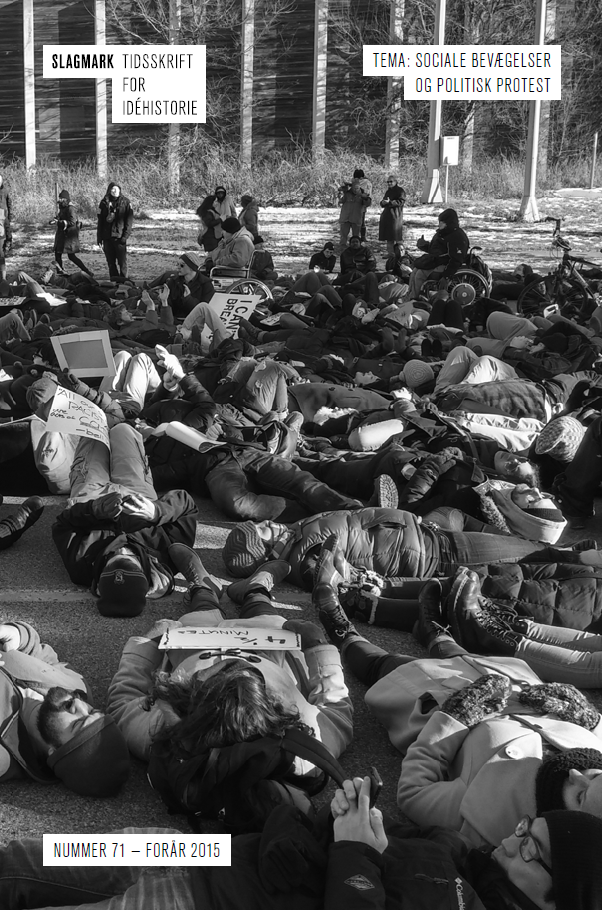Prekæritet og prekariat:
Sociologisk diskussion og politisk aktivisme
DOI:
https://doi.org/10.7146/sl.v0i71.107307Keywords:
Precarity, Labour, Post-Fordism, Social movements, ClassAbstract
This article reviews the theoretical and political history of the concept of precarity, used to describe various forms of insecurities, primarily those related to conditions of labor, employment, and wage. Precarity and the related neologism precariat have recently gained ground in Anglophone intellectual and political discussions. It is the premise of the article that, with an increasingly globalized economy, discussions and movement action based on precarity may be of growing importance in a Danish context. The aim of the article is to show how the history of these concepts has unfolded in sociological discussions and social movement practices since the turn of the century. I begin with the sociological discussion about the concept of the precariat, a class formation based on the conditions and experiences of precarity. I then show how the concept of precarity has a history in activist thought beyond these sociological discussions and how social movements, based on this thought, throughout the 2000s have mobilized around the concept, primarily in the so-called EuroMayDay parades. In the last section, I discuss how the economic crisis has affected social movement practices and how labor unions have begun paying attention to the predicaments of precarity.
References
Breman, J. (2013). A Bogus Concept? New Left Review, 84, 130–138. Hentet fra http://newleftreview.org/II/84/jan-breman-a-bogus-concept
Breman, J., & van der Linden, M. (2014). Informalizing the Economy: The Return of the Social Question at a Global Level. Development and Change, 45(5), 920–940. doi:10.1111/dech.12115
De Sario, B. (2007). 'Precari su Marte': an experiment in activism against precarity. Feminist Review, 87(1), 21–39. doi:10.1057/palgrave.fr.9400374
EuroMayDay. (2005). EUROMAYDAY CALL. Hentet fra http://www.euromayday.org/2005/index-2005.php
Fantone, L. (2007). precarious changes: gender and generational politics in contemporary Italy. Feminist Review, 87(1), 5–20. doi:10.1057/palgrave.fr.9400357
Fonseca, D. (2013). Precarious but Inflexible: The Rise of a New Social Movement in Portugal. Global Dialogue: Newsletter for the International Sociological Association, 3(2), 15–16. Hentet fra http://isa-global-dialogue.net/wp-content/uploads/2013/07/v3i2-english.pdf
Galetto, M., Lasala, C., Magaraggia, S., Martucci, C., Onori, E., & Pozzi, F. (2007). a snapshot of precariousness: voices, perspectives, dialogues. Feminist Review, 87(1), 104–112. doi:10.1057/palgrave.fr.9400368
Gill, R., & Pratt, A. (2008). In the Social Factory?: Immaterial Labour, Precariousness and Cultural Work. Theory, Culture & Society, 25(7-8), 1–30. doi:10.1177/0263276408097794
He@arbejderen.dk. (2015, 26. marts). I luften er arbejdskampen global. Arbejderen, s. 14–16.
IndustriALL Global Union. (2014). Negotiating Security: Trade union bargaining strategies against precarious work. Hentet fra http://www.industriall-union.org/sites/default/files/uploads/documents/STOP-PrecariousW-august2012/Bargaining_strategies/a4_precarious_work_en_web.pdf
Kragballe, S. (2014, 13. juni). Slagteriarbejdere siger ja til at slagte en del af lønnen. Jyllands-Posten, Erhverv, s. 2.
MacKay, J. (2014). The Italian social strike is a landmark event for the precariat. openDemocracy. Hentet fra https://www.opendemocracy.net/can-europe-make-it/jamie-mackay/italian-social-strike-is-landmark-event-for-precariat
Madsen, P. K. (2013). “Shelter from the storm?” – Danish flexicurity and the crisis. IZA Journal of European Labor Studies, 2(6), 1–19. doi:10.1186/2193-9012-2-6
Marx, K. (1970). Kapitalen: Kritik af den Politiske Økonomi (1.-3. bog). København: Rhodos.
Mattoni, A. (2012). Media Practices and Protest Politics: How Precarious Workers Mobilise. Farnham & Burlington,VT: Ashgate Publishing.
Munck, R. (2013). The Precariat: a view from the South. Third World Quarterly, 34(5), 747–762. doi:10.1080/01436597.2013.800751
Murgia, A. (2014). Representations of Precarity in Italy: Collective and Individual Stories, Social Imaginaries and Subjectivities. Journal of Cultural Economy, 7(1), 48–63. doi:10.1080/17530350.2013.856336
Neilson, B., & Rossiter, N. (2008). Precarity as a Political Concept, or, Fordism as Exception. Theory, Culture & Society, 25(7-8), 51–72. doi:10.1177/0263276408097796
Neville, S. (2013, 5. august). McDonald’s ties nine out of 10 workers to zero-hours contracts. The Guardian. Hentet fra http://www.theguardian.com/business/2013/aug/05/mcdonalds-workers-zero-hour-contracts
Oudenampsen, M., & Sullivan, G. (2004). Precarity and N/European Identity: (An Interview with Alex Foti (ChainWorkers)). Mute, 2(0). Hentet fra http://www.metamute.org/editorial/articles/precarity-and-neuropean-identity-interview-alex-foti-chainworkers
Palmer, B. D. (2013). Reconsiderations of Class: Precariousness as Proletarianization. I L. Panitch, G. Albo, & V. Chibber (red.), Socialist Register 2014: Registering Class (s. 40–62). London: The Merlin Press.
Pedersen, M. F. (2015). Forsker: Fremtidens arbejdsmarked truer fagforeningernes eksistens. Ugebrevet A4. Hentet fra http://www.ugebreveta4.dk/forsker-fremtidens-arbejdsmarked-truer-fagforeninger_19978.aspx
Scholl, C. (2013). Europe as contagious space: Cross-border diffusion through EuroMayDay and climate justice movements. I C. Flesher Fominaya & L. Cox (red.), Understanding European Movements: New social movements, global justice struggles, anti-austerity protest (s. 127–142). London & New York, NY: Routledge.
Seymour, R. (2012). We Are All Precarious – On the Concept of the 'Precariat' and its Misuses. New Left Project. Hentet fra http://www.newleftproject.org/index.php/site/article_comments/we_are_all_precarious_on_the_concept_of_the_precariat_and_its_misuses
Shukaitis, S. (2013). Recomposing precarity: Notes on the laboured politics of class composition. ephemera: theory & politics in organization, 13(3), 641–658. Hentet fra http://www.ephemerajournal.org/sites/default/files/pdfs/contribution/13-3shukaitis.pdf
Siegumfeldt, P. (2015). Ny klasse kræver nyt fagforeningsfokus. Magisterbladet. Hentet fra http://magisterbladet.dk/news/2015/marts/nyklassekraevernytfagforeningsfokus
Standing, G. (2011). The Precariat: The New Dangerous Class. London: Bloomsbury Academic.
Standing, G. (2014). A Precariat Charter: From denizens to citizens. London & New York, NY: Bloomsbury Academic.
Werge, L. (2015). Prekariatet – den fælles udfordring. Journalisten. Hentet fra http://journalisten.dk/prekariatet-den-faelles-udfordring
Winther Nielsen, S. (2014, 12. oktober). En ny tids klassekamp. Politiken, s. 6.
Wright, S. (2002). Storming Heaven: Class Composition and Struggle in Italian Autonomist Marxism. London: Pluto Press.
Zechner, M. (2013). A Precarity Office in Vienna: notes from the start of an experiment. ∫connessioni precarie. Hentet fra http://www.connessioniprecarie.org/2013/09/23/a-precarity-office-in-vienna-notes-from-the-start-of-an-experiment/risager





